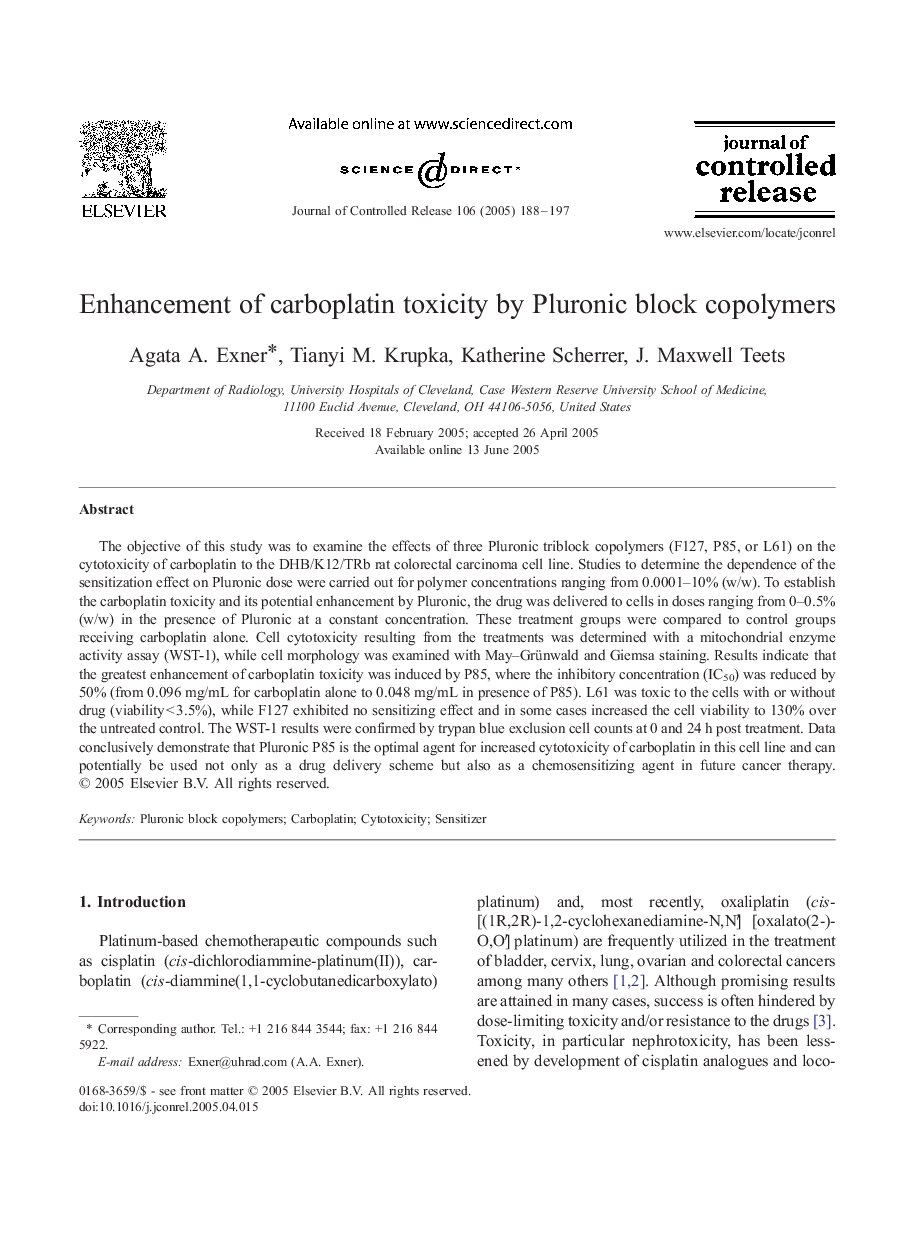| Article ID | Journal | Published Year | Pages | File Type |
|---|---|---|---|---|
| 9774663 | Journal of Controlled Release | 2005 | 10 Pages |
Abstract
The objective of this study was to examine the effects of three Pluronic triblock copolymers (F127, P85, or L61) on the cytotoxicity of carboplatin to the DHB/K12/TRb rat colorectal carcinoma cell line. Studies to determine the dependence of the sensitization effect on Pluronic dose were carried out for polymer concentrations ranging from 0.0001-10% (w/w). To establish the carboplatin toxicity and its potential enhancement by Pluronic, the drug was delivered to cells in doses ranging from 0-0.5% (w/w) in the presence of Pluronic at a constant concentration. These treatment groups were compared to control groups receiving carboplatin alone. Cell cytotoxicity resulting from the treatments was determined with a mitochondrial enzyme activity assay (WST-1), while cell morphology was examined with May-Grünwald and Giemsa staining. Results indicate that the greatest enhancement of carboplatin toxicity was induced by P85, where the inhibitory concentration (IC50) was reduced by 50% (from 0.096 mg/mL for carboplatin alone to 0.048 mg/mL in presence of P85). L61 was toxic to the cells with or without drug (viability < 3.5%), while F127 exhibited no sensitizing effect and in some cases increased the cell viability to 130% over the untreated control. The WST-1 results were confirmed by trypan blue exclusion cell counts at 0 and 24 h post treatment. Data conclusively demonstrate that Pluronic P85 is the optimal agent for increased cytotoxicity of carboplatin in this cell line and can potentially be used not only as a drug delivery scheme but also as a chemosensitizing agent in future cancer therapy.
Keywords
Related Topics
Physical Sciences and Engineering
Materials Science
Biomaterials
Authors
Agata A. Exner, Tianyi M. Krupka, Katherine Scherrer, J. Maxwell Teets,
